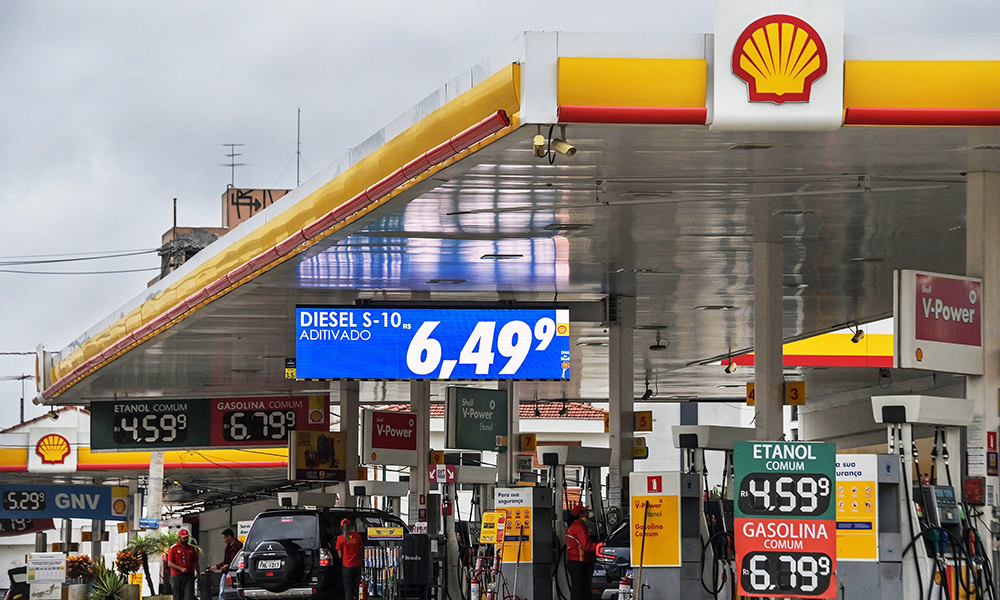
乍一看,这像是20世纪70年代才会出现的情景。
但能源危机却让这一切成为当下发生的现实状况。
年迈的老人们兴许还记得自己年轻时经历的那“自我的十年”,记得喇叭裤、迪斯科……还有石油危机带来的文化冲击。那场危机让高油耗汽车在一夜之间被淘汰,为多年经济不景气而带来的痛苦埋下伏笔。
为应对俄乌冲突导致的石油价格飙升,3月18日,世界主要的能源监督机构提出了一项彻底的返古策略:建议推行城市周日无车日活动,并降低车辆在高速公路的最高时速。这一策略是一系列建议推行的紧急措施的一部分,旨在限制全球石油需求。
在俄乌冲突持续破坏全球石油供应之际,国际能源署(International Energy Agency)提出十项减少燃油需求的计划。根据该机构的说法,如果计划全面付诸实施,这些措施就将在四个月内让石油需求每天减少270万桶。
国际能源署在3月18日的新闻稿中表示:“当俄罗斯的大量石油供应不再进入市场,且即将进入7月和8月的石油需求高峰期之时,这些措施将大大减轻潜在压力。”
限制俄罗斯石油供应
据国际能源署今年2月的报告显示,俄罗斯是全球最大的石油出口国和世界第三大产油国。自俄乌冲突爆发以来,西方国家对俄罗斯宣布了一系列严厉的经济制裁措施,美国和英国宣布禁止进口俄罗斯石油,使得俄罗斯在经济上遭受重创。
据路透社(Reuters)报道,随着欧盟(European Union)讨论对俄罗斯实施石油禁运,供应问题可能变得更加严重。根据国际能源署今年3月关于石油市场的报告所示,由于经济制裁,俄罗斯将损失石油总产量的大约三分之一。
本周晚些时候,美国总统乔·拜登将在比利时布鲁塞尔会见北约(NATO)的领导人,讨论如何加码制裁俄罗斯,其中可能包括实施更多的禁运。
倡导更多人居家办公?
国际能源署警告称:全球各国可能很快就会面临数十年来最大的石油供应冲击,强调各国应该采取其十项计划中列出的进一步预防措施。
3月18日,国际能源署的署长法提赫·比罗尔说:“国际能源署成员国已经介入以支持全球经济发展。目前已经初步释放了数百万桶紧急石油库存,此外我们也能够根据需求采取进一步行动,以避免出现严重的石油危机。”
比罗尔补充道:“这些措施已经在多个国家试点,并证明了其有效性。我们提出的十项计划可以避免出现严重的石油危机。”
在这些措施中,国际能源署还建议各国能够将居家办公时间延长至每周三天,鼓励乘坐实惠便利的公共交通工具,此外,尽可能避免商务航空旅行,采取其他旅行方式。
国际能源署表示:“减少石油需求并不能完全依靠各国当局推行措施下达命令,其中有几项可以由地方政府,例如州、地区或乡镇政府直接实施,或者由公民和企业自愿遵循,这样一来,公民也能省钱。”(财富中文网)
译者:ZHY
乍一看,这像是20世纪70年代才会出现的情景。
但能源危机却让这一切成为当下发生的现实状况。
年迈的老人们兴许还记得自己年轻时经历的那“自我的十年”,记得喇叭裤、迪斯科……还有石油危机带来的文化冲击。那场危机让高油耗汽车在一夜之间被淘汰,为多年经济不景气而带来的痛苦埋下伏笔。
为应对俄乌冲突导致的石油价格飙升,3月18日,世界主要的能源监督机构提出了一项彻底的返古策略:建议推行城市周日无车日活动,并降低车辆在高速公路的最高时速。这一策略是一系列建议推行的紧急措施的一部分,旨在限制全球石油需求。
在俄乌冲突持续破坏全球石油供应之际,国际能源署(International Energy Agency)提出十项减少燃油需求的计划。根据该机构的说法,如果计划全面付诸实施,这些措施就将在四个月内让石油需求每天减少270万桶。
国际能源署在3月18日的新闻稿中表示:“当俄罗斯的大量石油供应不再进入市场,且即将进入7月和8月的石油需求高峰期之时,这些措施将大大减轻潜在压力。”
限制俄罗斯石油供应
据国际能源署今年2月的报告显示,俄罗斯是全球最大的石油出口国和世界第三大产油国。自俄乌冲突爆发以来,西方国家对俄罗斯宣布了一系列严厉的经济制裁措施,美国和英国宣布禁止进口俄罗斯石油,使得俄罗斯在经济上遭受重创。
据路透社(Reuters)报道,随着欧盟(European Union)讨论对俄罗斯实施石油禁运,供应问题可能变得更加严重。根据国际能源署今年3月关于石油市场的报告所示,由于经济制裁,俄罗斯将损失石油总产量的大约三分之一。
本周晚些时候,美国总统乔·拜登将在比利时布鲁塞尔会见北约(NATO)的领导人,讨论如何加码制裁俄罗斯,其中可能包括实施更多的禁运。
倡导更多人居家办公?
国际能源署警告称:全球各国可能很快就会面临数十年来最大的石油供应冲击,强调各国应该采取其十项计划中列出的进一步预防措施。
3月18日,国际能源署的署长法提赫·比罗尔说:“国际能源署成员国已经介入以支持全球经济发展。目前已经初步释放了数百万桶紧急石油库存,此外我们也能够根据需求采取进一步行动,以避免出现严重的石油危机。”
比罗尔补充道:“这些措施已经在多个国家试点,并证明了其有效性。我们提出的十项计划可以避免出现严重的石油危机。”
在这些措施中,国际能源署还建议各国能够将居家办公时间延长至每周三天,鼓励乘坐实惠便利的公共交通工具,此外,尽可能避免商务航空旅行,采取其他旅行方式。
国际能源署表示:“减少石油需求并不能完全依靠各国当局推行措施下达命令,其中有几项可以由地方政府,例如州、地区或乡镇政府直接实施,或者由公民和企业自愿遵循,这样一来,公民也能省钱。”(财富中文网)
译者:ZHY
It’s looking a lot like the 1970s suddenly.
Energy crises have a way of doing that.
Those old enough to remember living through the “Me decade” remember the bell bottoms, the disco … and the culture shock of an oil crisis that made gas-guzzling cars obsolete overnight and set the stage for years of economic pain.
On March 18, the world’s leading energy watchdog suggested a downright retro strategy to cope with the skyrocketing price of oil amid war in Ukraine: car-free Sundays in cities and reduced speed limits on highways as part of a series of recommended emergency measures aimed at limiting global oil demand.
The International Energy Agency’s 10-point plan to cut oil use comes as the Russian invasion of Ukraine continues to rupture global oil supplies. According to the IEA, the plan would lower oil demand by 2.7 million barrels a day within four months if fully carried out.
“This would significantly reduce potential strains at a time when a large amount of Russian supplies may no longer reach the market and the peak demand season of July and August is approaching,” the organization wrote in March 18’s press release.
Moving away from Russian oil
Russia—the world’s largest exporter of oil to global markets and the third-largest oil-producing country in the world, according to the IEA’s Feb. report—has suffered economically since its unprovoked invasion of Ukraine prompted the Western world to dole out a string of harsh economic sanctions and outright bans on Russian oil from the U.S. and U.K.
The supply issue could continue to tighten as the European Union debates instituting its own embargo of Russian oil, according to Reuters. According to the IEA’s March report on the oil markets, Russia stands to lose roughly one-third of its total oil production due to economic sanctions.
Later this week, President Joe Biden will meet with NATO leaders in Brussels to discuss implementing further consequences for Russia’s invasion, which could include more embargoes.
More working from home?
As a result, the IEA is warning that the world may soon be facing its biggest oil supply shock in decades and stressed the importance of countries taking further preventative measures laid out in its 10-point plan.
“IEA Member Countries have already stepped in to support the global economy with an initial release of millions of barrels of emergency oil stocks, but we can also take action on demand to avoid the risk of a crippling oil crunch,” said IEA Executive Director Fatih Birol on March 18.
“Our 10-Point Plan shows this can be done through measures that have already been tested and proven in multiple countries,” Birol added.
Other recommendations in the IEA’s plan include working from home for up to three days a week, cheaper public transportation and avoiding business air travel if alternative options exist.
“Reducing oil demand does not depend solely on national governments,” the IEA said. “Several of the measures can be implemented directly by other layers of government – such as state, regional or local – or just voluntarily followed by citizens and corporates, enabling them to save money while showing solidarity with the people of Ukraine.”






